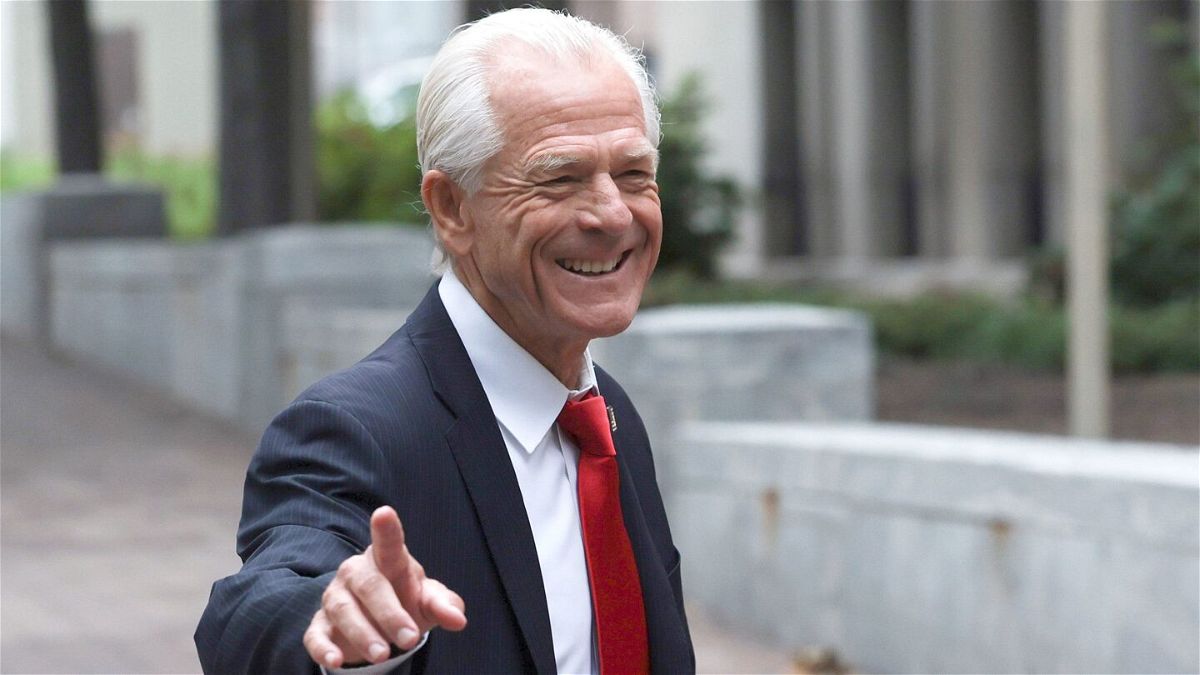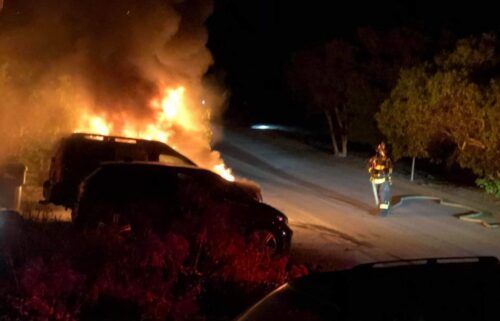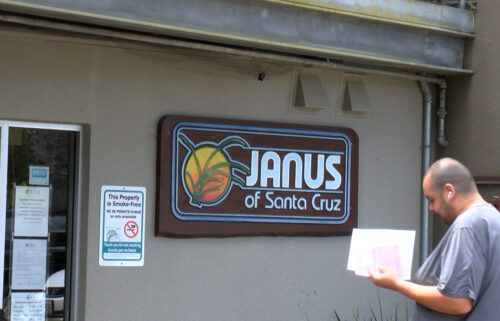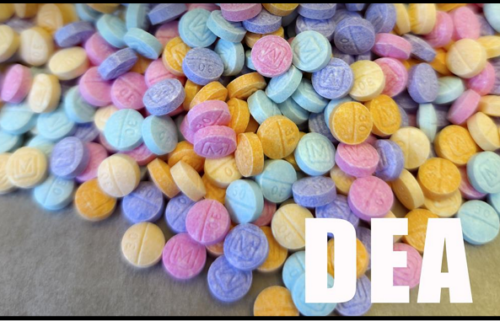Prosecutors say former Trump adviser Peter Navarro ‘acted as if he is above the law’ as trial begins

The contempt of Congress trial against Peter Navarro started in earnest the morning of September 6
By Tierney Sneed and Devan Cole, CNN
(CNN) — The contempt of Congress trial against Peter Navarro started in earnest Wednesday morning, with dueling opening statements from prosecutors and the defense.
The former White House trade adviser “acted as if he was above the law,” Justice Department attorney John Crabb told the jury. “But he is not above the law. No one is.”
Navarro’s attorney countered that prosecutors’ case is like a movie that doesn’t live up to the trailer.
“Why open their case with a history of George Washington to Adams to Obama to Trump?” Navarro attorney Stanley Woodward told the jury, referencing a part of the prosecutors’ opening statement that discussed the peaceful transfer of presidential power.
“This trailer is like one of those movies where you get nothing after the preview,” Woodward said.
The trial is expected to be a short one, and already the proceedings have moved briskly. Just a handful of witnesses are expected to take the stand and it’s possible the case will go to jury deliberations by the end of Wednesday.
While previewing what would be a “simple case” for the jury, Crabb said in the government’s opening statement that it was an “important” one.
The United States was a “nation of laws,” Crabb said, and “our system doesn’t work” if people think they are above the law or don’t comply with it.
Crabb walked the jury through the highlights of evidence that, he said, will show that Navarro ignored a February 2022 subpoena issued by the House select committee tasked with investigating the January 6, 2021, assault on the US Capitol.
“Congress had information that Mr. Navarro had communications and documents, and perhaps knew things about why the attack on the Capitol happened,” Crabb said.
“Why did Congress think this? Because Mr. Navarro said so,” the prosecutor added, pointing to public statements Navarro made, including on podcast and television, discussing his theories about the supposed election fraud in 2020.
The subpoena was “not voluntary” and “not an invitation” but a legal “requirement,” Crabb stressed.
Woodward, in his opening for the defense, said that “much” of the evidence in the case “was not in dispute,” and that the defense agrees that the House January 6 select committee issued a subpoena to Navarro and that he accepted that subpoena.
“The evidence in this case will not show that Dr. Navarro was willful in his failure to comply,” Woodward said, alluding to one of the elements of the contempt charge the government will need to prove.
Woodward previewed that the jury would be presented with evidence that the committee did not contact former President Donald Trump to negotiate privilege issues, as Navarro suggested in response to the subpoena.
Navarro has been dealt a series of pre-trial rulings that severely limited the defense arguments he could put forward, including with a decision from US District Judge Amit Mehta that concluded that Trump did not make a valid assertion of privilege or immunity that precluded the Justice Department from prosecuting him for contempt.
If Navarro is convicted, he and his lawyers have signaled that they would like to litigate that and other issues on appeal.
Dust-up over ‘inflammatory’ language
At one point during Wednesday’s proceedings, Mehta expressed frustration that he had to respond on the fly to testimony prosecutors sought from a witness on references to “domestic terrorism” language that were included in the House resolution setting up the January 6 committee.
The judge brought up the episode after the jury left for a mid-morning break, prompting a testy exchange between prosecutors and defense attorneys.
DOJ attorney Elizabeth Aloi had asked the witness, David Buckley, who served as the staff director of the committee, to read from part of the resolution that established the now-defunct committee that investigated the Capitol insurrection.
After he did so, Mehta told the jury that the document does not relate to Navarro’s charges, something he did again at a later point during Buckley’s testimony.
After the jury left the room for a break, Mehta asked both sides if they would be presenting any other evidence that includes similar language, saying that he’s concerned about the jury hearing “words that are potentially inflammatory” that relate to the case at hand but are not central to it, so that they can sort out a solution ahead of time.
Woodward also appeared angry as he told the judge that prosecutors’ opening statement “is the same opening that they gave in the Oath Keepers case.”
Woodward said it was “inappropriate” to link his client to the attack on the Capitol.
“Nobody is contending that he is a direct cause” of the insurrection, Aloi shot back, prompting Navarro to begin pointing his finger toward Mehta as he attempted to address the judge.
Woodward quickly brushed Navarro aside so he could continue making his case to Mehta about his concerns over prosecutors’ use of language related to the Capitol riot.
Buckley’s testimony largely focused on how and why the House select committee was set up. Woodward declined to cross-examine him once prosecutors finished their direct examination.
This story has been updated with additional developments.
The-CNN-Wire
™ & © 2023 Cable News Network, Inc., a Warner Bros. Discovery Company. All rights reserved.



